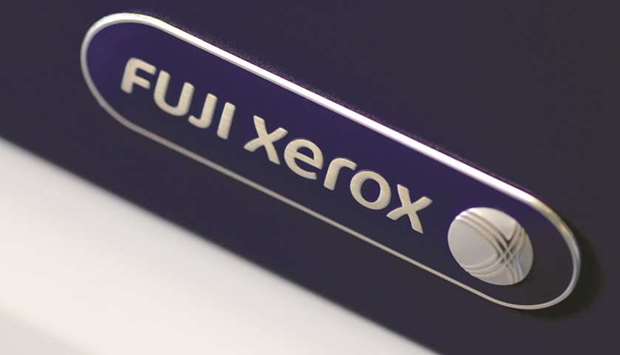Japan’s Fujifilm Holdings Corp has won an appeal in its legal battles with Xerox Corp, with a New York court overturning preliminary injunctions requested by an activist investor that had blocked their planned merger.
Xerox in May scrapped a $6.1bn deal with Fujifilm in a settlement with investors Carl Icahn and Darwin Deason that also handed control of the US photocopier giant to new management.
The ruling by the New York State Appellate Court could give the Japanese firm leverage to bring Xerox management back to the negotiating table.
Fujifilm is also suing Xerox in a separate US suit that seeks well over $1bn, accusing it of breach of contract in abandoning the deal.
Its chances of success are, however, unclear as Xerox’s new management, backed by Icahn and Deason, is opposed to the proposed merger. Analysts have said the only way for Fujifilm to gain any traction with Xerox now is to raise its offer.
Fujifilm said in a statement it stands by its view that the original planned merger remains the best option for the shareholders of both companies.
“(The) Court’s decision will allow us to discuss with Xerox the fulfillment of the original agreement. All Xerox shareholders ought to be able to decide for themselves the operational, financial, and strategic merits of the transaction to combine Fuji Xerox and Xerox,” it said.
The two companies agreed in January to a complex deal that would have merged Xerox into their Asia joint venture Fuji Xerox and given Fujifilm control.
That prompted Icahn and Deason, who own 15% of Xerox and argued the US firm was being undervalued, to launch a proxy fight. Representatives for Xerox, Deason and Icahn were not immediately available for comment. The New York court found in its October 16 ruling that Xerox’s former CEO Jeff Jacobson, accused by Deason of negotiating the deal to save his own job, had neither misled or misinformed the board.
“The board, which engaged outside advisors and discussed the proposed transaction on numerous occasions prior to voting on agreeing to present it to the shareholders, did not engage in a mere post hoc review, nor was the transaction unreasonable on its face,” the ruling also said. The bitter legal wrangling has created much uncertainty for the two firms which are seen by many analysts as inextricably intertwined through their Fuji Xerox joint venture.
The venture accounts for nearly half of Fujifilm’s revenue while Xerox no longer builds its own office copiers, instead relying mostly on Fuji Xerox.
Xerox has said it would start sourcing products from new vendors for sale directly to customers in Fuji Xerox’s primary Asia-Pacific market.
The US firm is now led by John Visentin who worked as a consultant to Icahn in the proxy fight and just this month it appointed Louie Pastor, previously deputy general counsel at Icahn Enterprises, as general counsel.
Fujifilm chief executive Shigetaka Komori said in June the company was “not opposed to considering any new proposal from the new Xerox board” but added many of its shareholders were demanding that its money would be better off spent on its healthcare businesses.
“The latest ruling is a step forward for Fujifilm to make the deal happen,” said Masayuki Otani, chief market analyst at Securities Japan who believes Fujifilm should focus on healthcare.”But concerns remain about whether taking over Xerox is the right step for the company.”
Fujifilm’s shares were up 1.3% in afternoon trade, in line with the broader market.

The Fuji Xerox logo is seen on a photocopier in this illustration photo. Fujifilm is suing Xerox in a separate US suit that seeks well over $1bn, accusing it of breach of contract in abandoning the deal.
